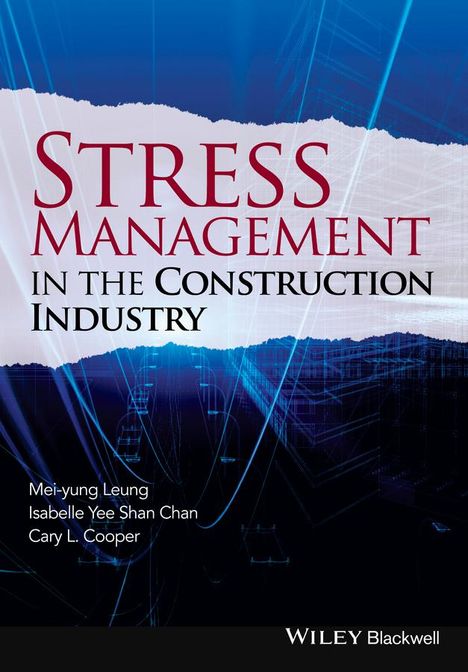Mei-Yung Leung: Stress Management in the Construction Industry, Gebunden
Stress Management in the Construction Industry
(soweit verfügbar beim Lieferanten)
- Verlag:
- Wiley, 01/2025
- Einband:
- Gebunden
- Sprache:
- Englisch
- ISBN-13:
- 9781118456415
- Artikelnummer:
- 6004958
- Umfang:
- 280 Seiten
- Gewicht:
- 658 g
- Maße:
- 244 x 173 mm
- Stärke:
- 20 mm
- Erscheinungstermin:
- 7.1.2025
- Hinweis
-
Achtung: Artikel ist nicht in deutscher Sprache!
Klappentext
"A book that presents an integrated and comprehensive stress management model that reflects the demands and dynamism of the construction industry is not just important but a must for all those working in the industry."
-Philip Dewe, Professor of Organizational Behaviour, Birkbeck College, University of London
"Stress kills and successful stress coping enables us to live abundantly... to thrive. This well-conceived, focused volume reveals the stress process in the challenging construction industry, and the best ways to cope."
-James Campbell Quick, Professor of Leadership & Organizational Behavior, John and Judy Goolsby - Jacqualyn A Fouse Endowed Chair, at University of Texas at Arlington
With its task complexity, tight timeframes, complicated work relationships and poor working environments, the construction industry is recognised as stressful.
This book aims to enhance the performance of construction personnel by presenting an integrated and comprehensive stress management model. Though illustrating both how construction personnel are affected by various stressors and how this influences their performance the model also explains how stress levels can be managed by dealing with the stressors and using appropriate adaptive coping behaviours.
Stress Management in the Construction Industry is based on an extensive literature review, on survey studies and on scenario analyses to thoroughly investigate the components of stress management for construction personnel, including the multiple dimensions of the stress they experience, the nature of their stressors, the coping behaviors they adopt, and the consequences of stress for their performance. The book aims to help researchers in construction management and in occupational health and safety understand the issues and theory, as well as offering practical recommendations for professional bodies and policy advisors.
The authors explore various stress management components and analyses for construction personnel, including their different work natures; the various stressors causing their stress; the manifestation of stress; the impact of coping behaviours to the stress; the consequences of stress on their performances; and the stress management strategies.
In order to provide specific and effective recommendations for construction personnel to manage their stress, these topics are supported by scientific research results including both survey statistics and scenario analyses. In chapters where scientific research results are applied, statistical results are first presented, followed by various scenarios to unveil the underlining reasons of the statistical relationships found. Detailed analyses and discussions are then be made using genuine construction context.
The authors' goal here is to facilitate the development of stress management research and education in construction, while also enhancing the awareness of construction personnel on the significance of stress and the importance of its management.
Biografie (Cary Cooper)
CARY COOPER is Professor of Organizational Psychology and Health, Lancaster University Management School and Pro Vice Chancellor (External Relations) at Lancaster University. He is the author of over 100 books (on occupational stress, women at work and industrial and organizational psychology), has written over 400 scholarly articles, and is a frequent contributor to national newspapers, TV and radio. He is a Fellow of the British Academy of Management and also of the Academy of Management (having also won the 1998 Distinguished Service Award). In 2001 he was awarded a CBE in the Queen's Birthday Honours List for his contribution to organizational health. He is Chair of The Sunningdale Institute, a think tank on management/organizational issues, in the National School of Government. He was also the lead scientist to the UK Government Office for Science on their Foresight programme on Mental Capital and Well Being (2007-2008), and was appointed a member of the expert group on establishing guidance for the National Institute for Health and Clinical Excellence on 'promoting mental wellbeing through productive and healthy working conditions', 2009. He is Chair of the UK's Academy of Social Sciences. Professor Cooper is also the President of the Institute of Welfare, President of the British Association of Counselling and Psychotherapy, a national Ambassador of The Samaritans, a Patron of the Anxiety UK, and Patron of the National Bullying Helpline. HR Magazine named him the 6th Most Influential Thinker in HR in 2009.

